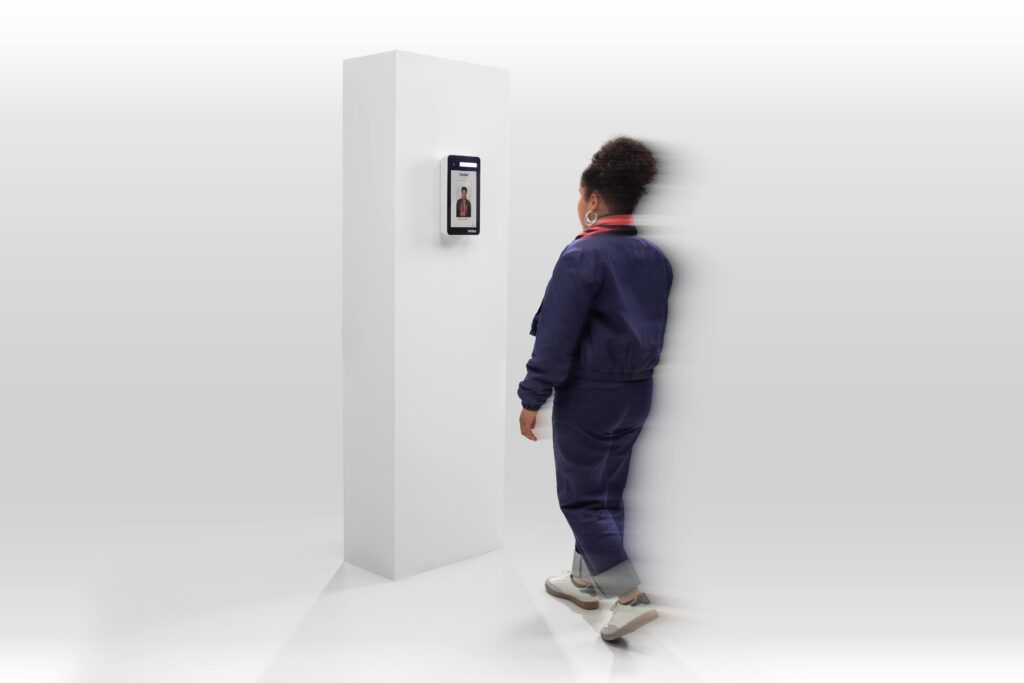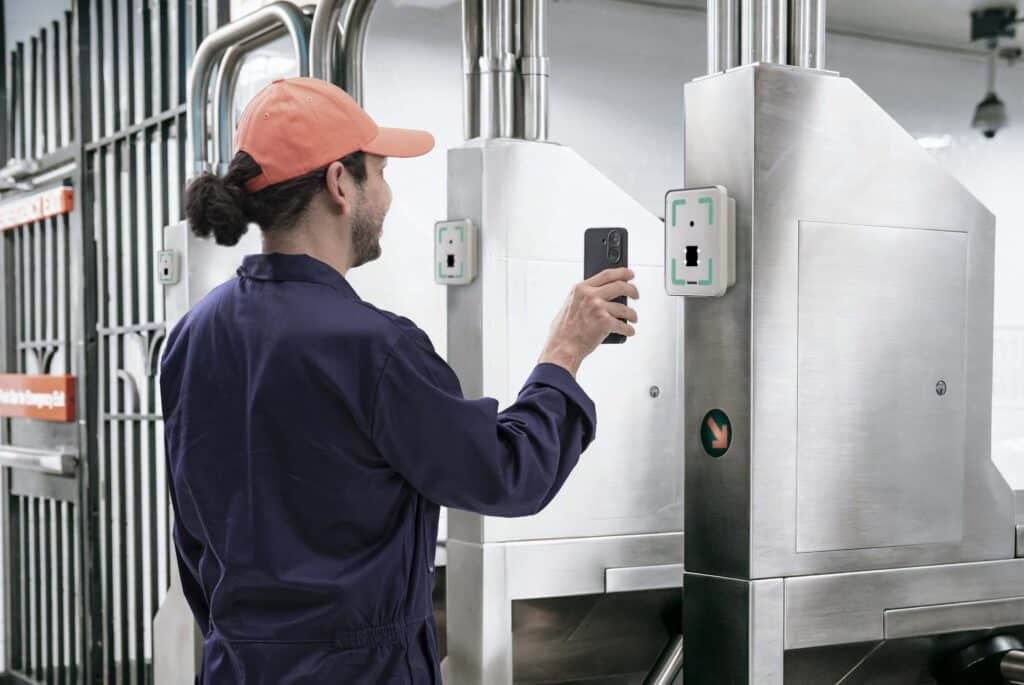In today’s complex threat landscape, traditional security measures that rely solely on passwords and physical access control cards are no longer sufficient. Organizations need a more comprehensive approach to securing their assets and data. This is where the concept of Know Your Employee (KYE) comes into play.
KYE is a strategic security framework that goes beyond simply verifying employee identities during the onboarding process. It’s a continuous process that focuses on gaining a deeper understanding of your workforce throughout their employment journey. This involves verifying identities, managing access controls, and monitoring employee activity for suspicious behavior.
What is Know Your Employee?
Traditional authentication methods, like passwords and key cards, are vulnerable to theft, loss, and social engineering attacks. Hackers can easily exploit weak passwords or trick employees into revealing credentials. KYE offers a more robust approach by:
- Strengthening identity verification: Utilizing multi-factor authentication and biometrics can significantly enhance the security of employee logins.
- Enhancing access control: KYE allows for granular access controls, granting employees access to specific resources based on their roles and responsibilities. This minimizes the potential for unauthorized access and data breaches.
- Promoting continuous monitoring: KYE encourages monitoring employee activity for suspicious behavior that may indicate compromise or malicious intent.
How does KYE work?
The KYE (Know Your Employee) framework rests upon three key pillars that work together to create a robust security posture. These pillars address the critical aspects of employee identity, access, and activity, ensuring a comprehensive approach to security.
1. Real Identity Verification
The foundation of any KYE strategy is establishing trust through verifying the authenticity of employee identities. This process goes beyond simply checking government-issued IDs during onboarding. KYE leverages advanced solutions to ensure the legitimacy of employee identities and prevent unauthorized access. This can involve techniques like:
- Document verification: Utilizing sophisticated tools to validate the authenticity of government-issued IDs and passports.
- Multi-factor authentication (MFA): Requiring multiple factors, such as passwords, one-time codes, or biometrics, to verify user identity during login attempts.
- Biometric authentication: Utilizing facial recognition or voice recognition technology to provide a secure and convenient way to verify user identity.
By employing these methods for identity verification, organizations can significantly reduce the risk of unauthorized access to sensitive systems and data.

2. Access Control
KYE moves beyond simply verifying identity; it also focuses on granting employees access to authorized resources based on their roles and responsibilities. This principle of least privilege ensures that employees only have access to the data and systems they need to perform their jobs effectively. KYE strategies implement robust access control measures like:
- Role-based access control (RBAC): Assigning access permissions based on predefined roles within the organization. An employee in the marketing department wouldn’t have access to the same systems as someone in finance.
- Attribute-based access control (ABAC): Granting or denying access based on dynamic attributes, such as location, device type, or time of day. This ensures additional security layers beyond simply the employee’s role.
- Data Loss Prevention (DLP): Implementing technologies that prevent sensitive data from being accidentally or maliciously transferred or shared outside of authorized channels.
By implementing comprehensive access control measures within the KYE framework, orgawnizations can minimize the risk of unauthorized access to sensitive data and ensure that only authorized individuals have the necessary permissions to perform their tasks.
3. Continuous Monitoring
The KYE approach goes beyond initial verification and access control; it emphasizes continuous monitoring of employee activity. This helps to identify any suspicious behavior that may indicate compromise or malicious intent. KYE utilizes monitoring solutions to track:
- User login attempts: Monitoring login attempts for unusual activity, such as failed logins from unexpected locations or attempts outside of regular working hours.
- File access and download activity: Tracking access and download attempts for sensitive data to identify potential data breaches or exfiltration attempts.
- Unusual activity within applications: Monitoring employee activity within specific applications for any unauthorized actions or deviations from standard protocols.
By continuously monitoring user activity, KYE empowers organizations to detect potential threats early and take preventative action to mitigate security risks.
These three pillars – identity verification, access control, and continuous monitoring – work together to create a comprehensive and effective KYE strategy. By implementing these measures, organizations can significantly enhance their security posture, build trust with their workforce, and create a more secure and productive work environment.
How Important is it to Know Your Employee?
Implementing a KYE (Know Your Employee) strategy offers a multitude of benefits that go beyond simply safeguarding your data. It can transform your security posture, enhance employee experience, and streamline operations, ultimately contributing to a more successful and efficient organization.
Enhanced Security Posture
- Reduced Risk of Unauthorized Access and Data Breaches: A Ponemon Institute study revealed that the global average cost of a data breach in 2023 reached a staggering $4.35 million. KYE mitigates these risks by strengthening identity verification, enforcing granular access controls, and enabling continuous monitoring. This multi-layered approach significantly reduces the opportunities for unauthorized access and data breaches, protecting your organization’s critical assets and financial well-being.
Improved Employee Experience
- Frictionless Access to Resources: Imagine a work environment where employees don’t need to juggle complex passwords or wait for IT support to reset forgotten credentials. KYE solutions like biometric authentication offer a more convenient and secure way to access resources, boosting employee satisfaction and productivity. A study by Unisys found that 72% of employees believe that strong authentication solutions improve their overall work experience.
Reduced IT Costs
- Lower Overhead Expenses: Managing password resets, access control changes, and security incidents can be a significant drain on IT resources. KYE streamlines these processes, automating tasks and reducing the need for manual intervention. Additionally, the reduction in security breaches lowers the associated costs of investigation, remediation, and regulatory compliance. A report by Gartner predicts that security and risk management spending will reach $168 billion in 2023. Implementing KYE can help optimize these expenses by focusing resources on proactive security measures.
By investing in KYE, organizations gain a significant return on investment (ROI) by fostering a more secure, efficient, and employee-centric work environment. The benefits extend beyond immediate cost savings, contributing to a stronger brand reputation, increased customer trust, and ultimately, a more competitive advantage in today’s digital landscape.

KYE Benefits – Employee Onboarding
- Improved security posture: Mitigates the risk of unauthorized access, data breaches, and insider threats.
- Enhanced user experience: Streamlines access to resources by replacing complex passwords with more convenient and secure authentication methods.
- Reduced IT costs: Eliminates the need for frequent password resets and manual access control management.
- Increased compliance: Helps organizations meet regulatory requirements for data protection and access control.
By implementing a KYE strategy, organizations can transform their security posture, build trust with their employees, and create a more secure and productive work environment.
The Role of Biometrics in KYE
In today’s evolving security landscape, traditional authentication methods like passwords and access cards are becoming increasingly vulnerable. Biometrics, the science of verifying a person’s identity based on unique physical or behavioral characteristics, offers a powerful solution for KYE strategies.
Advantages of Biometric Authentication
- Enhanced Security: Biometric characteristics like facial features or voice patterns are unique to each individual. Unlike passwords or access cards, which can be lost, stolen, or shared, biometrics provide a more secure and reliable way to verify identities. This significantly reduces the risk of unauthorized access to sensitive data and resources.
- Improved Convenience: Biometric authentication eliminates the need for employees to remember complex passwords or carry multiple access cards. Employees simply scan their fingerprint, face, or iris to gain access, streamlining the login process and improving user experience.
- Reduced Risk of Human Error: Forgotten passwords or lost access cards can lead to security breaches and productivity disruptions. Biometric authentication removes this human element, providing a more reliable and consistent method for user verification.
Biometrics: Security and Convenience with Privacy Considerations
Despite the undeniable advantages, the use of biometrics in KYE raises concerns about privacy and data security. Here’s how organizations can address these concerns:
- Transparency and Consent: Organizations must be transparent about how they collect, store, and use biometric data. Employees should be informed about the security measures in place and have the option to opt-in or opt-out of biometric authentication.
- Data Security: Biometric data should be encrypted and stored securely. Organizations should implement robust data security practices to minimize the risk of unauthorized access or data breaches. Regular security audits and penetration testing are crucial to ensure the integrity of biometric data.
- Compliance with Regulations: Different regions have varying regulations regarding the collection and use of biometric data. Organizations must comply with all applicable data privacy laws to ensure responsible biometric practices.
Finding the Right Balance
By adopting a responsible approach that prioritizes security, convenience, and privacy, organizations can leverage the power of biometrics to strengthen their KYE strategies. Investing in robust data security measures, fostering transparency with employees, and complying with relevant regulations can help build trust and ensure the responsible implementation of biometric authentication within the KYE framework.
Biometric technology is constantly evolving, with advancements in facial authentication and voice authentication offering even more secure and convenient authentication methods. As technology matures and user concerns are addressed, biometrics is likely to become an even more prominent tool for KYE and identity verification across various industries.
Know Your Employee (KYE): Preventing Internal Fraud Threats
Internal fraud threats pose a significant risk, as disgruntled employees or those with malicious intent may use their authorized access to harm an organization. This can include stealing data, sabotaging systems, or even committing fraud. Employee negligence can also lead to security breaches. Simple mistakes, such as using weak passwords or failing to follow security protocols, can create opportunities for attackers.
The financial impact of these attacks is staggering. According to a https://cybersecurityventures.com/ source, the global cost of cybercrime is expected to reach $10.5 trillion annually by 2025. These attacks can cripple businesses, forcing them to invest heavily in recovery efforts and potentially causing irreparable damage to their reputation.
In the face of these evolving threats, it’s crucial for organizations to adopt a holistic approach to security that encompasses both physical and digital security measures, with a strong emphasis on identity management. By verifying employee identities, controlling access to critical resources, and continuously monitoring activity, organizations can significantly enhance their security posture, mitigate insider threats, and protect their valuable assets.
Know Your Employee Verification Process: ZeroData ID, a Privacy-Centric Identity Solution for KYE
The growing use of biometrics in KYE strategies raises valid concerns about user privacy and data security. However, solutions like ZeroData ID address these concerns by eliminating the need to store actual biometric data. This patented technology simplifies data handling, opens up possibilities for a limitless number of users due to 1:1 matching (unlike traditional 1:N comparisons), and avoids the need for a large central database.
This is where ZeroData ID emerges as a game-changer. ZeroData ID is a revolutionary biometric authentication technology patented by Veridas that provides a secure and privacy-centric approach to KYE. Unlike traditional methods that store biometric templates inside the access terminals or hardware, ZeroData ID utilizes a sophisticated mathematical process to create a unique identifier (a “cryptographic token”) based on the user’s biometric data which is only stored on the individual’s device, and that can only be activated by combining the use of their face with a biometric qr stored on their cell phone.
Here’s how ZeroData ID protects user privacy:
- No Biometric Data Storage: This technology eliminates the need to store sensitive biometric templates on servers or in the storage system of the terminals themselves. Instead, the ZeroData ID process generates a unique token that mathematically represents the biometric data without actually storing it. It is the user himself, who stores this information in his device, which can only be used in conjunction with his face. In this way, this information becomes private and non-transferable, since it needs a second authentication factor, which in this case, is the user’s face.
- Enhanced Security: ZeroData ID doesn’t compromise security. The generated token remains unique to each user and cannot be replicated or forged, offering a robust layer of authentication. It can also be renovated as many times as desired.
- User Control: With our ZeroData ID, the user has control over their biometric information. The user’s biometric vector is stored in the QR code that the user carries with them. In the authentication process, the terminal extracts the user’s biometric vector and compares it with the one stored in the ZeroData ID.
Veridas and ZeroData ID
Veridas, a leading provider of Know Your Employee solutions, has patented ZeroData ID technology. By integrating ZeroData ID into its KYE platform, Veridas offers organizations a powerful solution that:
- Strengthens Security: Provides a robust layer of authentication without compromising user privacy.
- Boosts User Confidence: Empowers users by keeping their biometric data under their control.
- Simplifies Compliance: Reduces the need for organizations to manage and secure sensitive biometric data, easing compliance with data privacy regulations.
Veridas’ ZeroData ID powered KYE solutions offer a future-proof approach to identity verification, balancing the need for security with user privacy concerns. This innovative technology paves the way for a more secure and user-centric KYE experience.
Veridas: Your Identity Partner for a Comprehensive KYE Solution
Veridas empowers organizations to implement a robust Know Your Employee (KYE) strategy with a comprehensive suite of products designed to secure physical and digital access across your entire organization.
Veridas Physical Access Control Terminals
- Zero Data Terminal: It’s a terminal with a second-factor authenticator that allows users to carry their data with them. Designed for any environment, its robust design ensures durability in harsh conditions and functionality in unsupervised spaces.
These terminals seamlessly integrate with your existing access control system, allowing you to:
- Grant or deny access based on facial authentication: Eliminate the need for physical credentials like key cards or access codes, reducing the risk of loss, theft, or unauthorized duplication.
- Manage user permissions: Define and assign access privileges for different user groups, ensuring employees only have access to authorized areas.
- Maintain an audit trail: Track employee entry and exit times, fostering accountability and providing valuable insights for security investigations.
Veridas Digital Identity Solutions
Beyond physical access control, Veridas offers a range of digital identity solutions to strengthen your KYE strategy:
- ID Verification (IDV): Veridas’ IDV solution allows you to verify the authenticity of government-issued IDs for tasks like onboarding new employees or processing payroll advances. This helps mitigate the risk of fraudulent activity and ensures you’re working with legitimate individuals.
- Voice Authentication for Password Resets: Empower employees to reset forgotten passwords through secure voice authentication. This eliminates the need for complex security questions or password resets through potentially compromised email accounts.
- Voice Authentication for Employee Services: Facilitate a more natural and user-friendly experience for employees by enabling them to access services like requesting benefits information, resetting passwords, or scheduling appointments through secure voice authentication.
- Facial Authentication for Secure Access: Veridas’ facial authentication technology goes beyond physical access control. Employees can leverage their unique facial features for secure and convenient access to a variety of digital resources, including:
- Unlocking Work Computers: Eliminate the need for remembering complex passwords and streamline the login process for employees.
- Accessing the Intranet: Securely access company intranet portals containing sensitive information and internal resources using facial recognition.
- Accessing Employee Benefit Applications: Simplify access to employee benefit applications, allowing employees to manage their benefits plans and information with a quick facial scan.
These digital identity solutions complement Veridas’ physical access control offerings, creating a comprehensive KYE ecosystem.
The Veridas Advantage
Veridas’ KYE product suite stands out thanks to:
- Unmatched Security: Leveraging cutting-edge biometrics like facial recognition and voice authentication, Veridas solutions provide a robust layer of security for physical and digital access.
- Enhanced Convenience: Biometric authentication eliminates the need for complex passwords or physical credentials, streamlining user experience and reducing login fatigue.
- Scalability and Flexibility: Veridas solutions can be tailored to meet the specific needs of your organization, regardless of size or industry.
By implementing Veridas’ KYE product suite, you can create a more secure and efficient work environment, fostering trust and boosting productivity. Secure your organization from entrance to exit with Veridas’ comprehensive KYE solutions.
One Identity, One Solution, a World of Possibilities
- Facial access to delivery entrances: Easy and fast access into the building’s multiple entrances for authorized employees, contractors, and business partners.
- Special and VIP Entrances: Identify and be alerted once VIPs have reached the premises and authorize their access to entrances specially dedicated to their use only.
- Remote access to corporate resources: Control who accesses what, when and how. It restricts access to certain privileged content according to the identity of the user.
- Parking/Garage Entry: Fast, Seamless and Secure access into and out of a parking facility not because of the car plates but because of the authorised identity of the driver.
- Employee Management: T&P: With a system based on Time and Presence, keep track of your employees’ work schedules, as well as breaks, clocking in and clocking out.
- Digital Facial Authentication for Computer, and Company Resources Login.
- Voice Authentication for automatic password reset.
- Voice authentication to request services related to employee benefits, as well as access to insurance resources, request for psychology or coaching appointments, etc…
- Streamline Visitor Access: Offer a better visitor experience by registering visitors’ identities and granting them access privileges to specific floors and spaces during restricted time zones.
- Authorize only designated personnel: Prevent unauthorized access to sensitive areas through facial authentication systems. Consider leveraging dual authentication through the use of facial biometrics with a 2FA terminal that requires the possession of a Biometric QR and the face associated with that QR.





